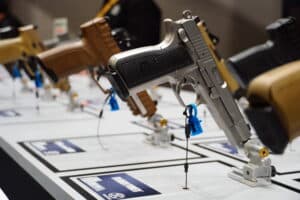It was only a matter of time before some state started down this path, as I predicted last September. Once Texas implemented a new tactic to sidestep court-issued injunctions against an abortion ban, it wouldn’t be long until a legislature somewhere aped that idea and applied it to something else, namely guns. Now, California is doing exactly that.
Contributing Writer Jake Fogleman explains where the tit-for-tat is headed. Hint: it’s nowhere good.
We’re also taking on media malpractice this week. But it’s not over poor or misleading coverage. It’s over coverage so bad it moves into the realm of literal criminality.
I’ve long argued media bias is driven more often by ignorance than malice. In NBC News’s case, that ignorance extends beyond the mechanics or politics of guns to the gun laws themselves. Because of that, they may well have broken one during a recent Nightly News report.
I explain exactly where they went wrong and why this happens more often than you might expect.
Plus, The Washington Post’s Radley Balko joins the podcast to discuss the Amir Locke killing. And I share some pictures from the farm too.

Analysis: The Problem With California’s Performative Gun Legislation [Member Exclusive]
By Jake Fogleman
Just days after the Supreme Court declined to block the Texas law prohibiting abortions after six weeks, California Governor Gavin Newsom (D.) publicly threatened to mimic the novel enforcement mechanism to go after guns in his state. Now, a new bill advancing through the California Senate would do just that.
SB-1327 supplants its enforcement from government officials to private litigators as a tactic to trip up judicial interventions, just like the Texas abortion law. It would allow anyone in California to sue anyone else who “manufactures…, distributes, transports, imports into the state…, keeps for sale or offers or exposes for sale, or gives or lends any firearm lacking a serial number required by law, assault weapon, .50 BMG rifle, or firearm precursor part.” Like the Texas law, successful plaintiffs would be entitled to $10,000 in statutory damages for each weapon or precursor part.
The bill stands to vindicate the stark warnings of analysts and gun-rights groups alike, who suggested that Texas’s strategy would be replicated by other states looking to target guns. Last October, the Firearms Policy Coalition (FPC) filed an amicus brief with the Supreme Court urging it to consider the far-reaching implications for other constitutional protections.
“FPC is interested in this case because the approach used by Texas to avoid pre-enforcement review of its restriction on abortion and its delegation of enforcement to private litigants could just as easily be used by other States to restrict First and Second Amendment rights or, indeed, virtually any settled or debated constitutional right,” the group said in its brief. “It is hardly speculation to suggest that if Texas succeeds in its gambit here, New York, California, New Jersey, and others will not be far behind in adopting equally aggressive gambits to not merely chill but to freeze the right to keep and bear arms.”
And the California bill’s proponents are arguing for exactly that.
“Will a lot of people sue? No. But once they do, it’s going to have a chilling effect,” California Senator Robert Hertzberg (D.), the bill’s primary sponsor, told The Washington Post.
The performative nature of the California bill cannot be overstated. Unlike the Texas law, which does not deal with any criminally prohibited conduct, the California bill would create a civil right of action for things that are already crimes. “Assault weapons,” .50 BMG rifles, and unserialized firearm precursor parts are already defined and regulated under California’s criminal codes, making civil enforcement redundant.
Furthermore, the bill specifically contains a provision that would invalidate itself if the Texas abortion law were to be repealed or struck down by either the US or Texas Supreme Court.
If the bill was truly being advanced to combat gun violence, one would think that its provisions would not be contingent upon the existence of an abortion law in a separate state.
A California Senate Judiciary Committee analysis of the bill highlighted the risks involved in participating in a tit for tat battle with red states over performative legislation.
“However, there is a risk that utilizing this model only legitimizes it further, which could have negative ramifications across the nation,” the analysis reads. “Already, Idaho has passed a law just weeks ago that essentially bans abortions after six weeks based on the Texas model.”
Yet the committee advanced the bill anyway with an overwhelming 8-1 vote. With the high-profile backing of the Governor, and with California being a state where Republicans are too weak to put up much of a fight on legislation, its chances of ultimately passing and becoming law are considerable.
Texas ultimately got the ball rolling by passing a novel abortion law with foreseeable nationwide consequences. Now, California is poised to apply it to guns as a symbolic middle finger to the Lone Star state. The federal courts, including the Supreme Court, have yet to act on discouraging this spiral.
Without judicial intervention or a detente among state legislatures currently using lawmaking as a proxy for the culture war, the fight could soon spill over to more states. Advocates on both sides would do well to keep that in consideration moving forward.
Podcast: The Washington Post’s Radley Balko on the Killing of Amir Locke
By Stephen Gutowski
Author and Washington Post Columnist Radley Balko joins the show this week to talk about how police militarization impacts gun rights.
Balko has spent a career documenting questionable police tactics, and he provides some unique insight into the Amir Locke case. Minneapolis Police killed Locke during a no-knock raid in February because he reached for a gun during the confusion caused by his apartment door being kicked in without warning. Locke wasn’t the subject of the warrant and had no record, but he ended up dead.
Now, the police officer who shot him has been cleared of any wrongdoing.
He is far from the only person who has had their life or freedom taken without recourse as the result of drawing a gun during a no-knock raid. Balko gives background on a vast collection of people who have found themselves in the same situation.
We also discuss the delicate balance between respecting police, attempting to make their jobs safer, and upholding Americans’ civil liberties. Balko explains his view on how gun-rights proponents should react when those priorities come into conflict. And he shares real-world examples of it happening, including the use of dubious ballistic matching evidence against criminal defendants.
Plus, Contributing Writer Jake Fogleman and I discuss California Senator Diane Feinstein’s (D.) solution to last week’s deadly shootout in Sacramento. And we have another member segment too!
You can listen to the show on your favorite podcasting app or by clicking here.
You can also watch it on our YouTube channel.
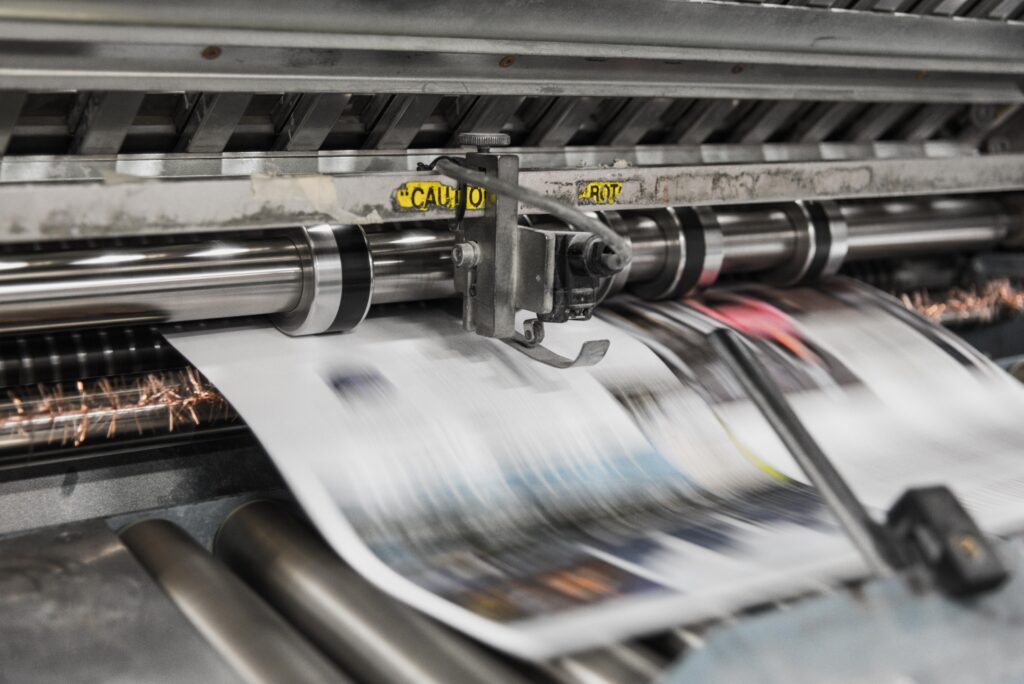
Analysis: Why Reporters Keep Breaking Gun Laws While Trying to Prove They’re Too Loose [Member Exclusive]
By Stephen Gutowski
A lot of ink has been spilled over how major media outlets get gun politics, legislation, and culture wrong, but it has an even more startling shortcoming: ignorance of gun laws to the point of literal criminality.
The most recent example comes from NBC News. On March 17th, they aired a report purporting to show how easy it is to obtain and build an unserialized gun. But in the process, reporter Vaughn Hillyard may have run afoul of state and federal law. Gun-rights groups have called for an investigation into Hillyard’s actions, and the ATF has responded to those calls.
The legal limbo Hillyard now faces results from ambiguity over what level of competition a handgun frame has to reach before the ATF considers it a firearm under federal gun laws. The unfinished frame Hillyard bought at a Pennsylvania gun show is not considered a firearm because key components necessary to make the gun fire when assembled are missing.

However, in recent years the ATF has based enforcement actions on the idea that an unfinished frame becomes a firearm when coupled with the tools necessary to finish it in what they call a “ghost gun” kit. The agency used that logic in a December 2020 raid on parts-maker Polymer80. It is also attempting to codify the kits-as-firearms formulation in a major rulemaking proposal that’s soon to be finalized.
Federal law generally requires all transfers of handguns between parties who live in different states to include a background check done by a licensed gun dealer. Since Hillyard lives in New York and transferred the unfinished pistol frame and tool kit to unidentified men in Pennsylvania, it may have been an illegal transfer. If so, that would be a federal felony carrying a potential punishment of up to 5 years in prison and a $5,000 fine.
If history is any guide, though, Hillyard doesn’t need to worry too much.
That’s because there’s a long history of reporters breaking the very gun laws they tried to prove are too loose. Many of them broke the law in ways more cut and dry than Hillyard’s situation, but none faced any charges.
In fact, this wasn’t the first time a reporter made a questionable handgun transfer across state lines. Producers from Katie Couric’s much-maligned 2016 documentary Guns Out appear to have illegally purchased handguns across state lines while attempting to demonstrate the act should be illegal.
Then there’s the case of CBS News reporter Paula Reid. She purchased an AR-15 from a store in Virginia in an attempt to make some sort of point about how quickly a gun can be bought. This case shared the same bizarre tactic of unnecessarily going undercover to make legal purchases that Hillyard used to buy his unfinished pistol frame. As with Hillyard, Reid put herself in legal limbo with what came after the purchase.
Despite telling the gun dealer she was buying the gun for herself, it turned out she purchased the rifle intending to give it away to somebody else after the segment aired. That means she likely lied on the background check when answering whether she was the actual buyer of the gun. The transaction could constitute a straw purchase, a federal felony, and the dealer she misled ended up reporting her to the ATF.
Of course, the list wouldn’t be complete without the most infamous example: David Gregory. During a 2012 episode of NBC’s Meet The Press, Gregory brought out a 30-round magazine while questioning NRA head Wayne LaPierre on why they shouldn’t be banned. The only problem was that they were banned in Washington, D.C., where the show was filmed.
Possession of a 30-round magazine in D.C. carries a punishment of up to a year in prison and a $1,000 fine. Police even wrote up an affidavit against Gregory. But he was never charged.
So, how does this keep happening?
It’s likely the same reason for many of the mistakes major media outlets make while covering guns: ignorance. These reporters seemingly didn’t understand the laws they appeared to have broken. It seems as though nobody at the outlets they did these reports for knew either.
Expertise in firearms policy is incredibly uncommon in major media. It’s not prioritized. It’s not valued.
While that may result in embarrassing factual errors or misleading reporting in most cases, sometimes it ends in legal trouble.
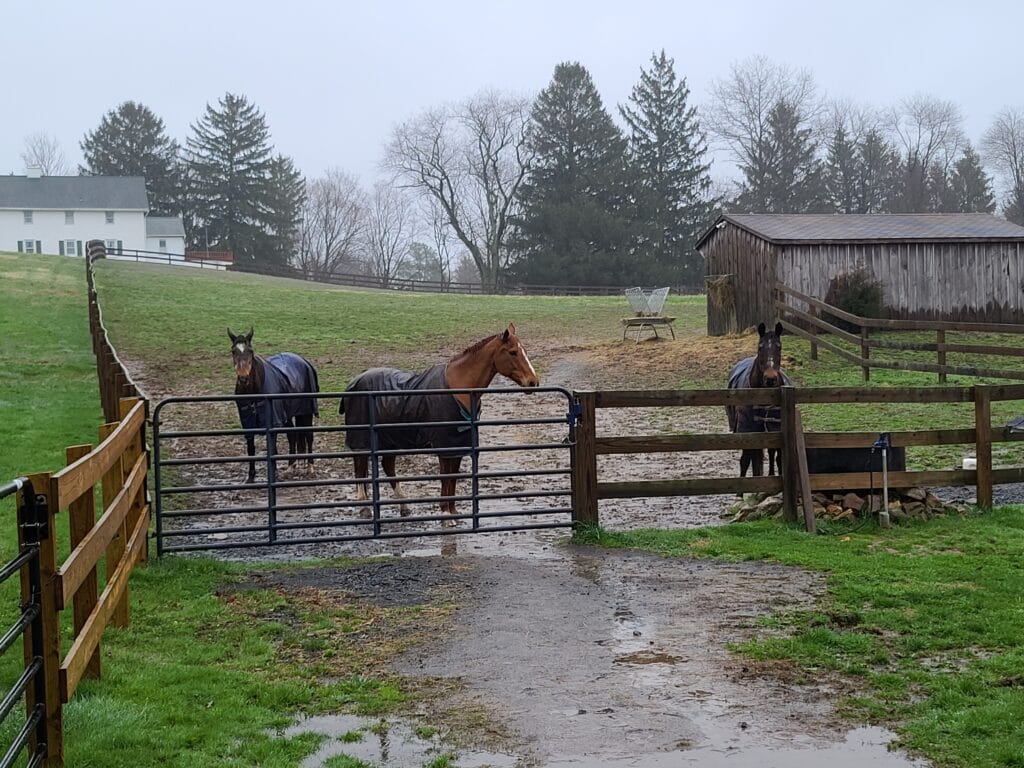
Back on the Farm
Since Thursday, I’ve been up in Pennsylvania watching my Mom’s horse farm. It’s been rainy, which makes the work about ten times harder and messier. Doing the chores necessary to take care of all the animals here is just that much harder when you have to trudge through thick mud to get it done.
The ban cat doesn’t seem to mind, though. Her hay throne is nice and warm and clean. And, as always, she’s the one on top.
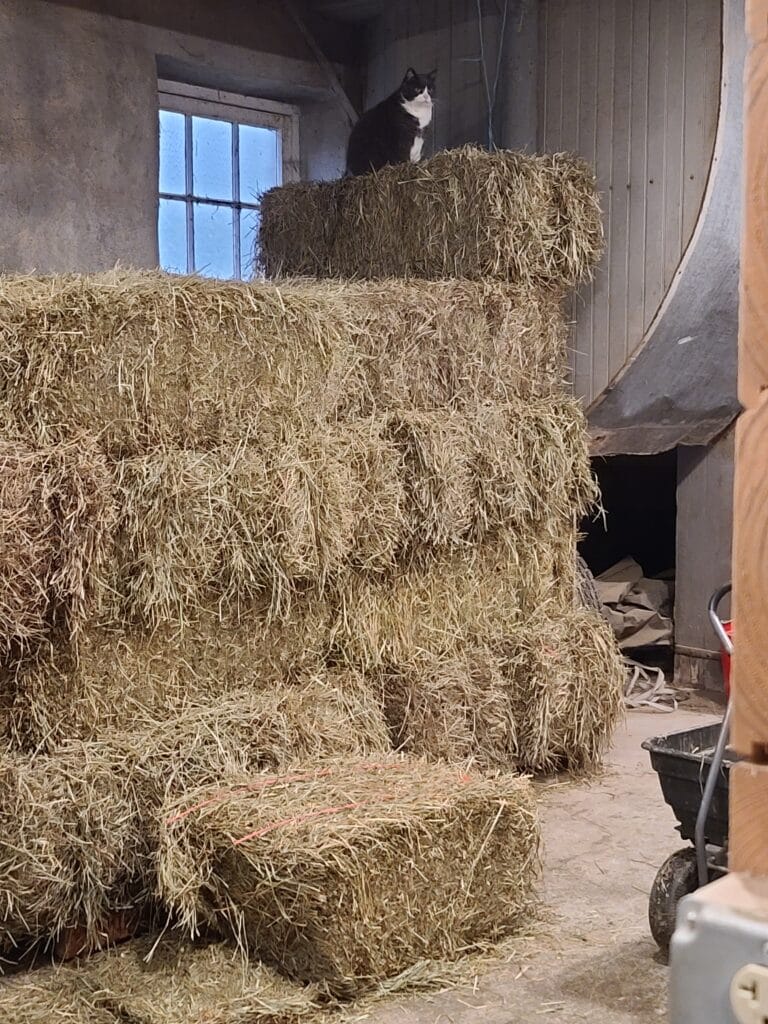
The horses don’t seem to mind much either. Mud is good for rolling in, you see. It helps scratch the itch created by the shedding of their winter coats. Plus, they seem to just generally enjoy rolling in the dirt anyway.
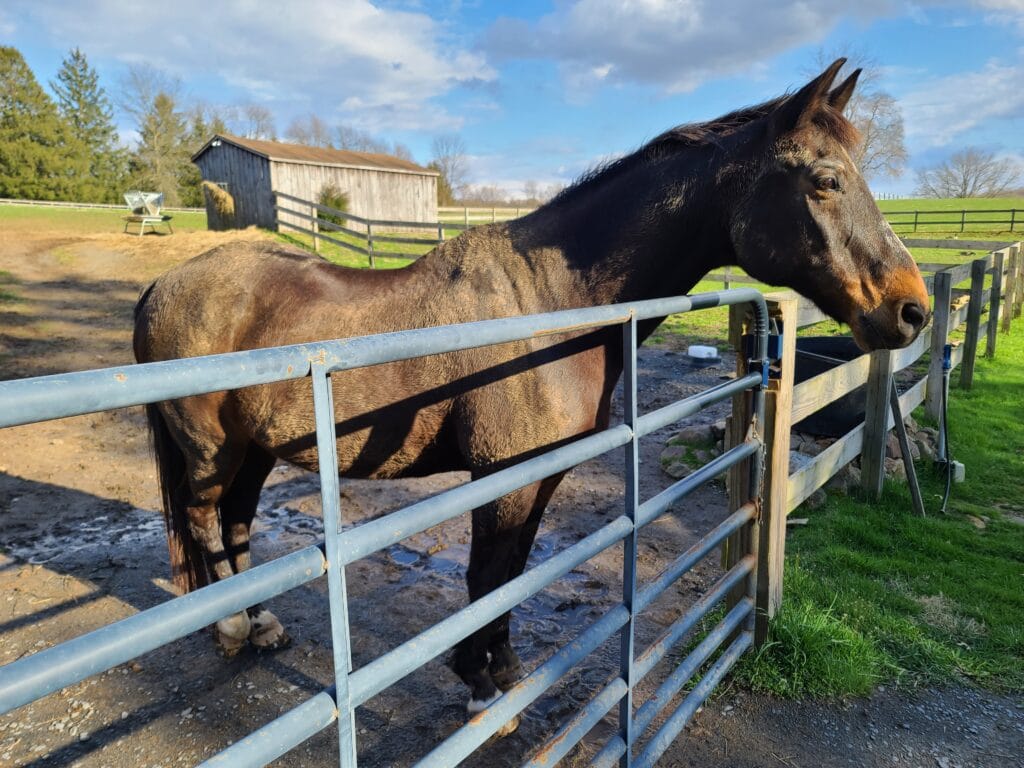
That’s more mess for me to sort out, though.
Truth be told, I don’t mind so much either. The exercise is good for the body. The fresh country air is good for the lungs. The combination is good for the soul.
That’s it for now.
I’ll talk to you all again soon.
Thanks,
Stephen Gutowski
Founder
The Reload






